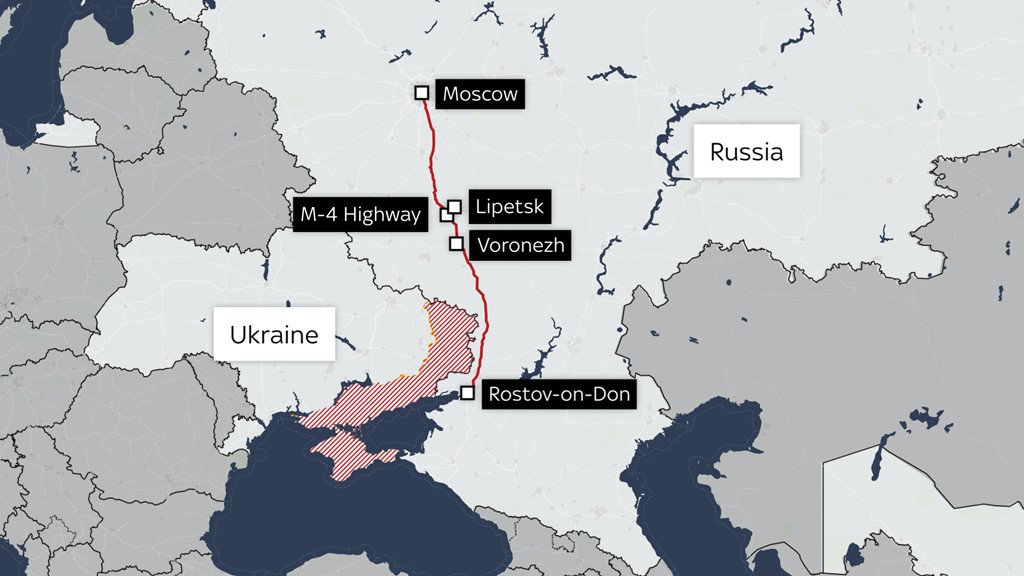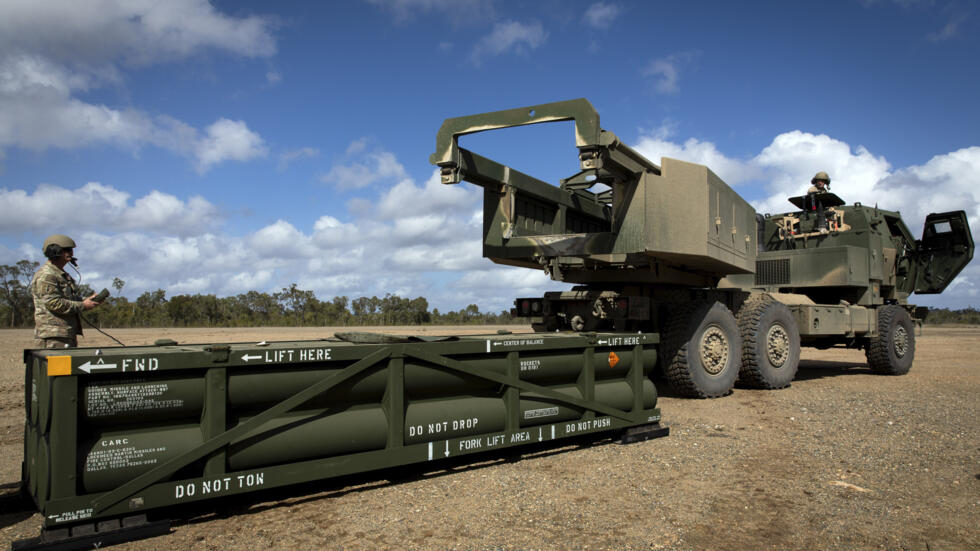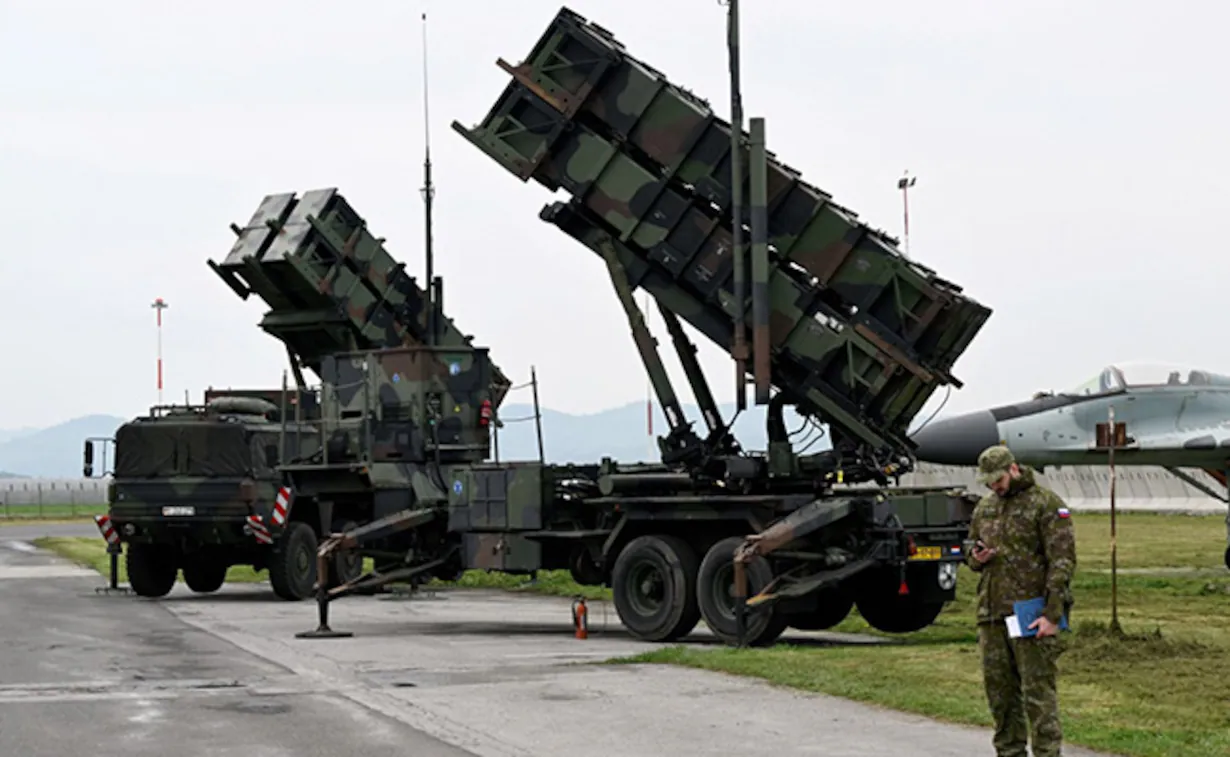Kyiv has recently, and unexpectedly, taken a radical measure involving the deployment of long-range missiles against Moscow, which sent a shockwave throughout the world. The use of such strategic weaponry pushed the limits of escalating tensions and fears of a potential Russian-Ukrainian conflict. Given the ever-changing nature of geopolitics, Kyiv’s activity involving the deployment of long-range missiles demonstrates its willingness to stand up for its sovereignty and secure the desired outcomes.
This is because deploying long-range missiles significantly tips the scales in the balance of power in the togelup region, as Ukraine demonstrates the capacity to target the heart of Russian territory. It is a signal to Moscow that Ukraine will not bow down and transform its geography-embedded self-protection into a real capability straight away. The consequences of this course of action are rather daunting as they have the potential to upset regional security and disrupt global peace.
Therefore, the world’s attention to these kinds of actions is vital, while diplomatic resolution must be found to ensure stability. As brought to light, the evolving state of global politics necessitates the adoption of proactive strategies in order to maintain peace and order.

Overview of Kyiv’s Deployment of Long-Range Missiles
Page Contents
- 1 Overview of Kyiv’s Deployment of Long-Range Missiles
- 2 Historical Context of the Ukraine-Russia Conflict
- 3 Analysis of the Strategic Implications for Moscow
- 4 Impact on Regional Security Dynamics
- 5 International Response and Implications
- 6 Assessing the Effectiveness of Kyiv’s Missile Deployment
- 7 Author
It is important once again to highlight that the utilization of long-range missiles does not imply a desire to start a conflict. In that sense, this action should be considered a means to prevent potential aggression from Moscow. Still, it has demonstrated that Kyiv wants to protect itself and support the status quo in the area.
The utilization of missiles inspires fear that international relations could deteriorate further and lead to unintended consequences. Contextual Background, the Key Events of the Ukraine-Russia Conflict To outline the event importance, one should consider the background and key events of the Ukraine-Russia conflict. The conflict’s roots can be traced back to 1991. After the dissolution of the Soviet Union, Ukraine became an independent country. However, the Russia-Ukraine relationship was filled with incidents and disputes in territorial issues, politics, and economy.
The annexation of Crimea by Russia in 2014 was the most severe stage of tension and one of the key events of the conflict. The move led to even worse bilateral relations and was condemned internationally, resulting in economic sanctions. Since then, fierce combat has continued between Ukrainian government soldiers and pro-Russian separatists.
Historical Context of the Ukraine-Russia Conflict
However, the deployment of long-range missiles by Kyiv can also be interpreted as a response to the years of aggression from Moscow. More than anything, it is a declaration that Ukraine is not going to give up on its sovereignty and right to exist as a nation, while the necessary means to protect this sovereignty will be readily employed. Most importantly, the very nature of Russia-Ukraine conflict is multifaceted and deeply historical, political, and cultural. Therefore, understanding its context is crucial for assessing the overall situation with Kyiv deploying missiles. Analysis of Strategic Implications for Moscow.
The strategic implications of Kyiv’s deployment of long-range missiles are dire for Moscow. For one, it challenges the very assumption that Russia can act without any consequences and sends a clear message that Ukraine will keep fighting for its sovereignty. The very possibility of missiles reaching deep into Russia makes them reconsider their approach. In military terms, deployment of long-range missiles by Kyiv creates a new battlefield reality. Suddenly, Russian military forces have to consider a possibility that Russian high command did not think possible before. It distracts Russian commanders and reduces the efficiency of their operations, as they have to react to the new threat.
Moreover, long-range missiles undermine the very idea that Russia is the sole power in the region. They attack the very idea of the protector of ethnic Russians and reduce claims of its self-assumed legitimacy in Ukraine. In many ways, it puts Russian leadership into a desperate situation and implies that the strategy of dealing with Ukraine has to be reconsidered.

Analysis of the Strategic Implications for Moscow
Finally, the deployment of long-range missiles by Kyiv also has a broader impact on regional security dynamics. The deployment of such weapons further strains the precarious relationship between Ukraine and Russia while increasing the risk of a renewed conflict. In this regard, it poses a new challenge to regional actors, who must address their policy towards the conflict once again. Countries in the region, such as Poland and the Baltics, are likely to perceive Kyiv’s missile deployment with concern.
They may see it as an indication of growing instability and a possibility of the conflict spreading to their territories. Consequently, they could re-assess their defense strategies and potentially increase military spending. Long-range missile deployment also affects the security calculus of other regional powers, such as NATO and Russia. For NATO, this could be an opportunity to strengthen its position in the region and support Ukraine in its struggle to sustain itself. However, Russia could interpret it as a provocation and act according, further inflaming tensions. Moreover, the international response has also been mixed following the deployment of long-range missiles by Kyiv.
Some countries expressed their support of Kyiv’s right to defend itself and, in tandem, called upon Russia to de-escalate the conflict. They condemned the military engagement in Ukraine while calling on Russia to obey international law and respects Ukraine’s sovereignty. The world urged the involved parties to resolve the conflict peacefully using diplomatic means.
Impact on Regional Security Dynamics
On the other hand, other countries have expressed their worries over the possible threat of events developing further and requested for restraints from both Ukraine and Russia. These countries have also stressed the importance of dialogue and negotiations in the struggle to find a way to avoid a full-scale war. These countries have been calling for diplomatic solutions to the problem which would take into consideration the interests of all sides. Thus, the global responses to the employment of a long-range missile by Kyiv include different sides difficulties with defending regional stability. In such a way, all responses show the presence of a need for additional diplomatic resolution of the problem.
Assessing Kyiv’s Missile Deployment The effectiveness of the Kyiv missile deployment could be assessed from different sides. From a military point of view, the employment of a long-range missile may offer Ukraine a good nt advantage ic could defend upon. It means that Ukraine may now instead of reaching deep into the society toossible increases the cost of potential aggression from Moscow. At the same time, the substance of this missile may depend on diuffer duffer factors, including its beyond firing distance and the ability of Ukrainian forces to act_sub in Integrate the missile into. conside_gration. In other words, the employment of a long-range missile is a solution that may provide good bearingin.
Out but is not a guarantee that this senseforgettable the impression term will win the conflictuation estration. A candidate for an endless invasionercul for the results of the employment of a long-range missile is its political and psychological impactaus.
International Response and Implications
Ultimately, the effectiveness of Kyiv’s missile deployment can only be fully evaluated in the context of this ongoing development. Given the complexity and dynamic nature of the situation, the impact of these missiles is yet to be determined as the conflict develops further and all sides take additional steps. There are several possible scenarios and future developments. The deployment of long-range missiles by Kyiv opens up a whole range of possible scenarios and future developments.
Depending on the actions of all sides involved, the deployment may contribute to some or all of the trends mentioned below. Further developments will depend on the actions of regional and international actors. The following are possible scenarios and outcomes. One of them concludes the further escalation of the conflict, leading to a large-scale war between Ukraine and Russia. The deployment of long-range missiles has significantly raised the stakes and increased the likelihood of unintended consequences.
If diplomatic efforts fail and recenttrends in escalatory dynamics continue, the conflict may spiral out of control. On the other hand, de-escalation of the conflict can become another possible scenario. The deployment of long-range missiles may catalyze diplomatic negotiations as a way to bring peace and avoid further escalation of tensions. For de-escalation of the conflict, a readiness of all actors to make concessions is required.

Assessing the Effectiveness of Kyiv’s Missile Deployment
The deployment of long-range missiles by Kyiv brings several lessons and recommendations to regional and international actors. It is undoubtedly indicative of the need for proactive measures to secure and sustain peace and stability. Given the dynamics of modern-day politics, the defense strategy needs to constantly evolve and be complemented by new technological and other capabilities.
Secondly, it will require diplomatic efforts and international cooperation to de-escalate the situation. Ukraine is in a very difficult situation because its roots originate from historical, political, and cultural areas. Therefore, the international community still needs to work on a situation committing full-fledged efforts to address the conflict causes and find ways to resolve it peacefully through dialogue and negotiation. Finally, it is also indicative of the importance of preserving a strong and credible defense policy.
Every country must sustain and further develop this sphere in order to demonstrate readiness and resistance to potential aggression as well as a contribution to peace and stability.





Comments are closed.